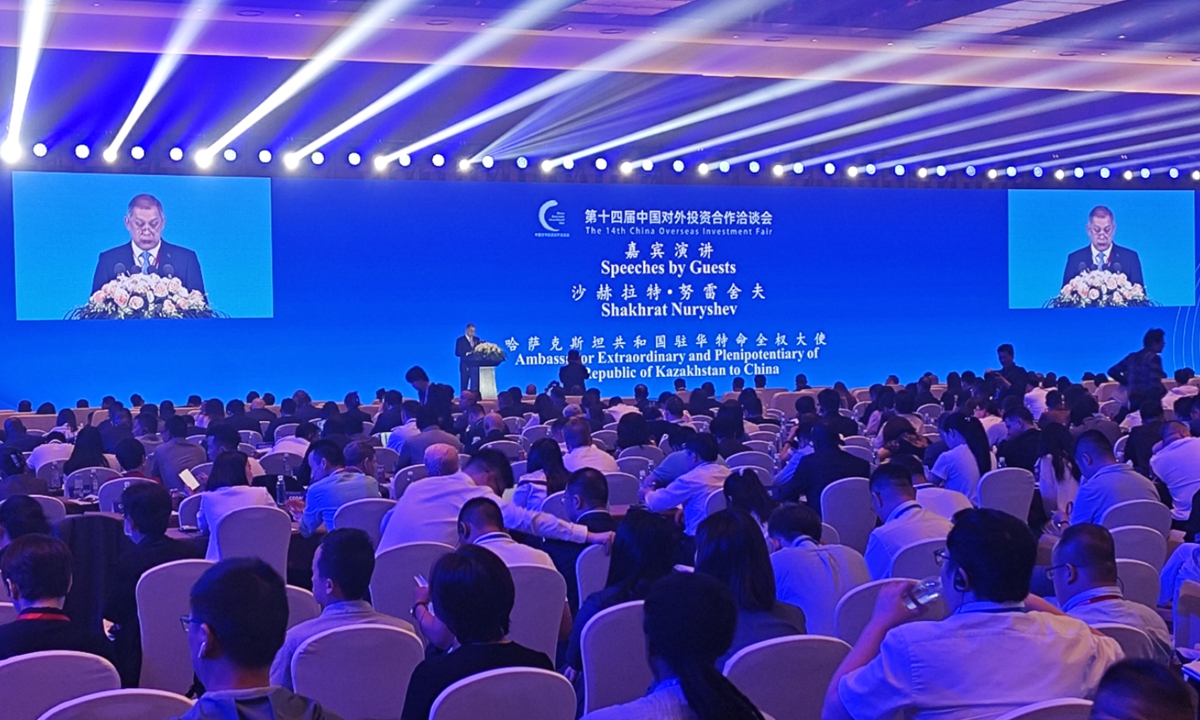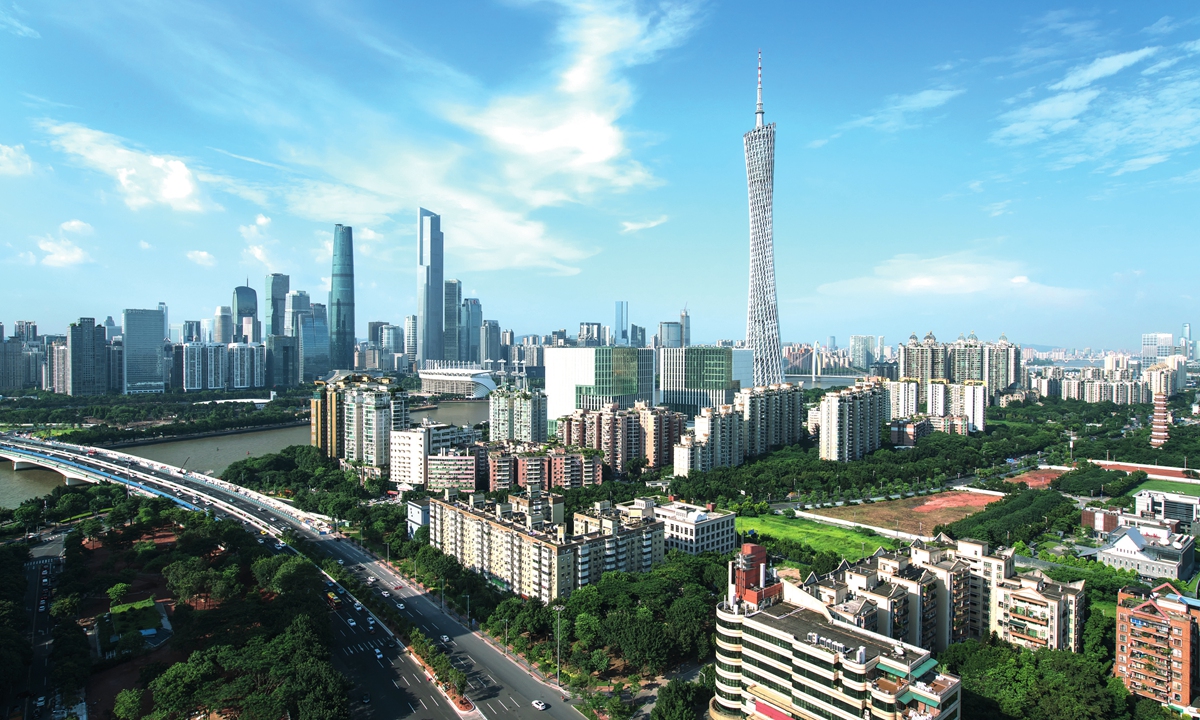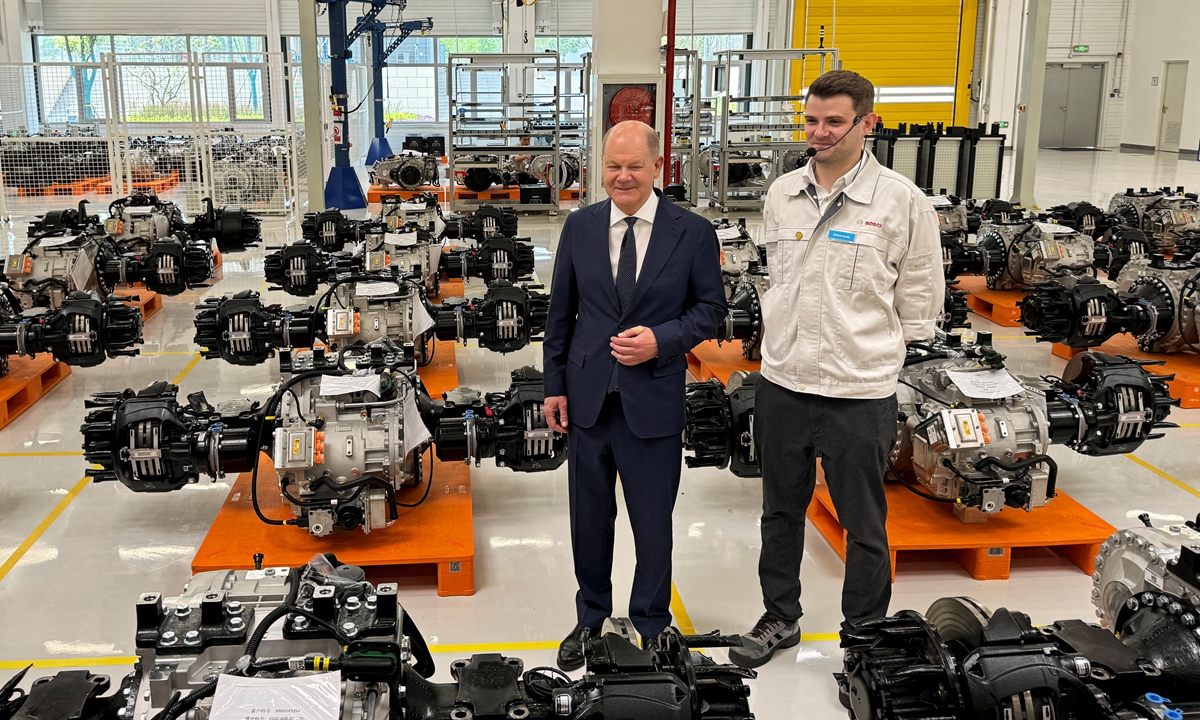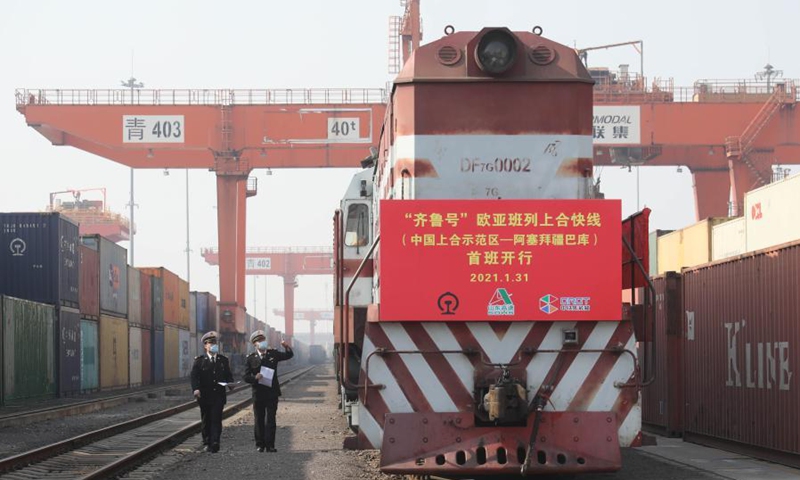Envoys call for strengthening economic and trade ties with China, defying 'decoupling' moves
China Overseas Investment Fair kicks off, highlighting global cooperation amid booming opportunities

The 14th China Overseas Investment Fair in Beijing on May 27, 2024 Photo: Yin Yeping/GT
Envoys and government officials have emphasized the need to strengthen cooperation with China, particularly in light of China's proposed Belt and Road Initiative (BRI), despite intensified efforts by the US and some of its allies to "decouple" from China.
These sentiments were expressed at the 14th China Overseas Investment Fair in Beijing, a two-day event held on Monday and Tuesday, which is expected to draw the participation of more than 2,200 people, including former heads of state, diplomats and business representatives from China and abroad, the Global Times learned from the event organizer on Monday.
As a key platform dedicated to overseas investment, the China Overseas Investment Fair serves as a pivotal forum for foreign nations eager to enhance investment cooperation with China. Officials will share perspectives on how collaboration with the world's second-largest economy has spurred positive changes in their respective regions while defying any "decoupling" attempts.
Cooperation has been key to facilitating the joint efforts of Chinese companies within the member states of the Shanghai Cooperation Organisation (SCO), which covers nearly half of the world's population, Vladimir Norov, former SCO secretary-general, said at the fair on Monday.
SCO member states possess significant resources and potential, and China, by combining its technological capacities with the development needs of these countries, is implementing joint projects that utilize modern, competitive production equipment and contracting services to set up local production and processing facilities, thereby creating jobs, according to Norov.
Through the joint implementation of the BRI, the region is becoming a critical link in global connectivity and transportation networks. Together with Chinese companies, numerous cooperation projects have been launched in infrastructure, oil and gas exploration, industrial production, medicine and healthcare, education, innovative technology, the digital economy and transportation, according to the former envoy.
Also at the fair, Petrou Petros, Commercial Counsellor of the Embassy of Cyprus in Beijing, told the Global Times that "We can see the targets that China has set for the future and where they want to move. This always provides an opportunity for investment, both into China and from China to other countries."
Regarding Cyprus, Petros said that "we already have some government projects underway with China, including major projects on energy infrastructure."
Discussing the growing protectionism posed by the US-led West seeking "decoupling" from China, participants also voiced their concerns at the fair.
"There is a strong trend toward de-globalization and putting a lot of politics into the economy and trade, and some other trade processes, which is not good," former prime minister of Moldova Chiril Gaburici, said at the fair.
"It is a must to have collaboration to be able to have a positive and good dialogue to be able to share the ideas and solutions of the world," Gaburici noted.
Speaking at the fair, Michael Campbell, Ambassador of Nicaragua to China, told the Global Times on Monday how cooperation with China brings about changes to the Latin American and Caribbean regions.
"Almost all of what we produce historically has been sent to the market of the US. China, with its technology, with its investment capacity, with initiatives, such as the BRI, is creating (new) opportunities for Latin America and the Caribbean to diversify and add value to their products," Campbell said.
The ambassador said that cooperating with China also helps his country and the region to finally develop their infrastructure, transportation and communications.
"Latin American and Caribbean countries are welcoming Chinese investors with arms wide open. And the BRI is having a very, very important impact in our own development, in meeting our own priorities and needs, which in the end will help Latin America and the Caribbean, but also will help the relationship between China and the region," Campbell said.
Campbell also responded to the recent US decision to impose high tariffs on Chinese electric vehicles (EVs), which he described as "one of the most ridiculous proposals, and probably a proposal that is just made in the framework of the electoral campaign in the US."
"This is a key example of the intention of decoupling…in the end, it will increase costs to the US people," Campbell said.
Andrei Fedarau, Deputy Head of the Foreign Economic Activity Department of Administration of Free Economic Zone "Grodnoinvest" in Belarus, said that "My country - Belarus - is fully open to Chinese investments. We have many Chinese companies operating in Belarus, and we are looking forward to broadening our cooperation with China."
Specifically, Fedarau said that Belarus is open in every sector ranging from production and logistics to high-tech.
Regarding rising protectionism by the US, highlighted by the recent tariff hike on Chinese EVs, Fedarau said that "this is unfair and absolutely unfriendly and even hostile."
"Our market is fully open to Chinese vehicles, and statistics show that we have more and more electric and traditional vehicles from Chinese car manufacturers each year."
Speaking at the forum, He Zhenwei, President of the China Overseas Development Association, the organizer of the event, said that in the trend of globalization, there is a growing need for interaction and cooperation, which is also the main purpose of holding such an event.
"We all live on the same planet, and whether in developing countries or developed countries, we all share the same goal, which is pursuing sustainable development," He said, indicating the need for cooperation rather than confrontation.



